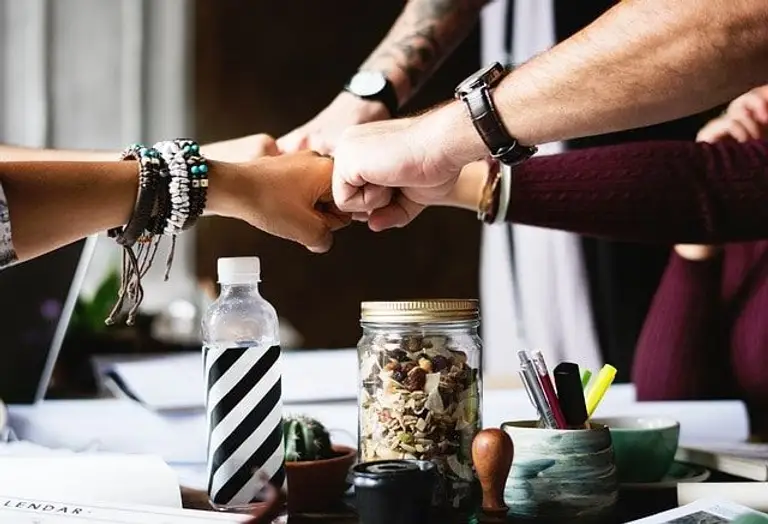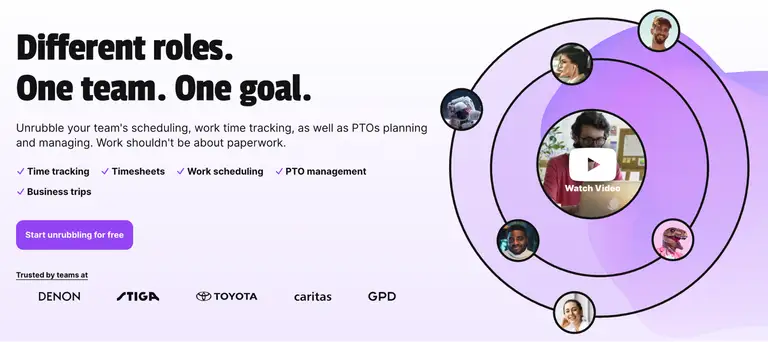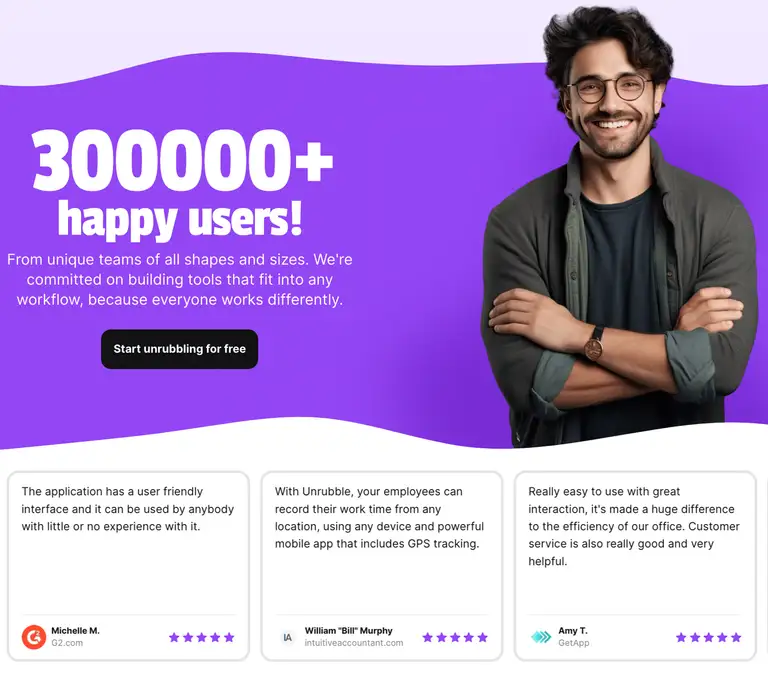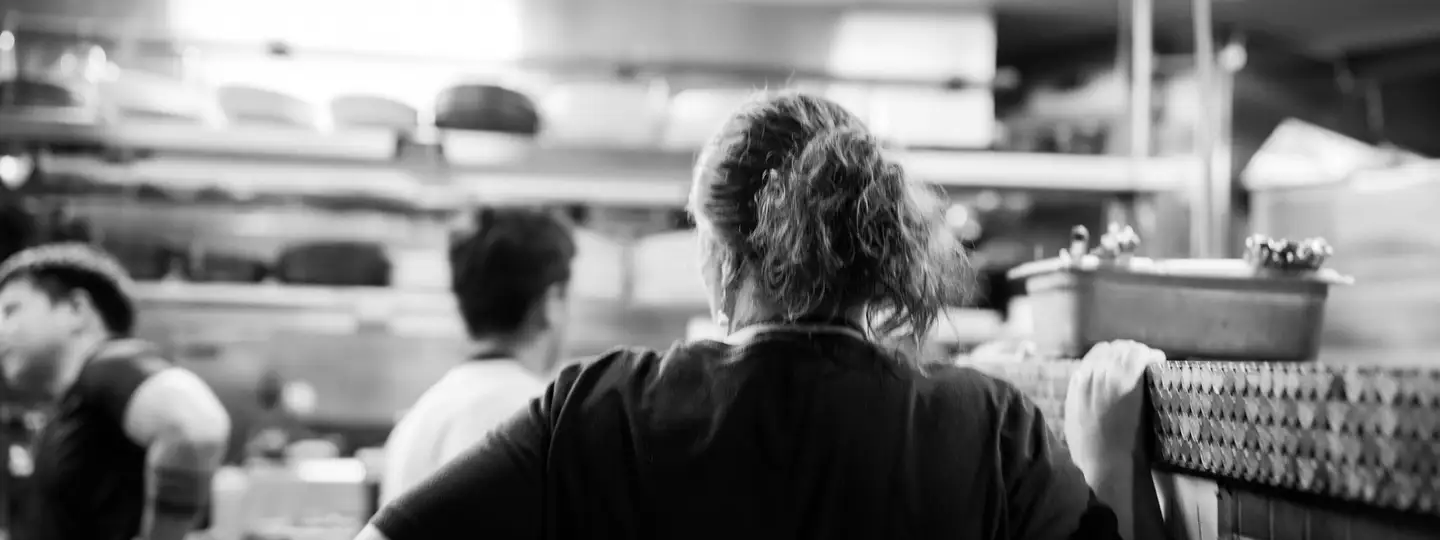Ever found yourself carrying the weight of a group project while others seemed to slack off? Sound familiar? That’s social loafing at play.
But what is social loafing, and how does it affect productivity in a group setting? Let’s dive in.
What is social loafing?
Social loafing happens when group members put in less effort on a group task than they would on individual tasks. This phenomenon disrupts group dynamics and impacts the overall outcome, especially in large teams where individual contributions are harder to track.
Understanding why social loafing occurs and learning strategies for mitigating social loafing can help improve group performance, foster team loyalty, and achieve more with the collective effort model. Whether you’re managing group projects, collaborating in online communities, or leading group meetings, tackling social loafing tendencies can make all the difference.
What causes social loafing?

Lack of individual accountability leads to social loafing behavior
One major reason why social loafing occurs is the absence of individual accountability in a group setting. When group members feel their individual efforts won’t be recognized, they may reduce their contributions. Social psychology research shows that in large groups, where tracking individual performance becomes difficult, people tend to perform poorly or engage in free riding.
For example, in online groups, where anonymity is common, the lack of individual accountability often leads to minimal input from some group members. To address this, teams should focus on establishing individual accountability, ensuring every group member knows their role in achieving the group outcome.
Clear objectives and measurable goals help reduce social loafing tendencies.
Larger group size diminishes individual effort and motivation
Group size significantly impacts individual's motivation and effort. In large groups, the social loafing effect becomes more prominent because individual contributions are less visible, and accountability is harder to maintain. Experimental social psychology studies reveal that social loafers often emerge when they believe other team members will pick up the slack.
For instance, during a group task, a team member feels less inclined to give maximum capacity if the entire group shares responsibility for the same task. Conversely, smaller groups encourage more effort, as contributions from all the members are more evident.
To combat this, managers can break tasks into small groups and assign clear, distinct roles to motivate team members.
Perceived social loafing discourages effort matching in group settings
The perception that other group members are contributing less can influence a team member to lower their own efforts. Known as effort matching, this occurs when individual members adjust their individual efforts based on how much they believe others are contributing.
If a group member notices perceived social loafing, they may justify reducing their own input, leading to a cascading drop in the group performance. For example, during group work, if one person senses co worker performance is subpar, they might follow suit.
Addressing social loafing behavior requires fostering transparency in group tasks and encouraging open communication to ensure everyone understands their role in the entire team’s success.
Free riding results from unequal contributions in collective tasks
Free riding happens when a group member benefits from the efforts of other group members without contributing equally. This behavior is common in collective tasks where the final group outcome doesn’t reflect individual contributions.

Research in social psychology highlights that free riding often emerges when people feel their individual effort won’t make a significant difference, such as in a large group setting. For example, in group projects, some participants may avoid doing their share, relying on the entire group to complete the work.
Reducing free riding involves using tools like the collective effort model cem, which emphasizes shared goals while tracking the contributions of each group member.
Social loafing occurs due to the complexity of group dynamics
Group dynamics are critical in how team members feel about contributing to group work. When social loafing tendencies arise, they can stem from unclear expectations, poor communication, or unequal workload distribution. In western countries compared to smaller groups in traditional settings, social loafing effect studies suggest that cultural norms also impact participation levels.
A meta analytic review of group settings reveals that when team members lack trust or feel undervalued, their individual efforts diminish. For example, a team member feels disengaged during group meetings if their ideas are dismissed. Strong leadership, inclusive discussions, and clearly assigned roles are essential to improve group tasks and reduce social loafing.
The social compensation hypothesis explains effort imbalances in groups
The social compensation hypothesis suggests that some team members work harder to compensate for social loafers within the group. This happens when motivated individual members take on additional work to ensure the group outcome doesn’t suffer.
While this prevents the entire group from failing, it can lead to resentment and burnout. For example, in group projects, a few individuals might feel obligated to do more effort because other team members are disengaged. This imbalance negatively impacts team loyalty and long-term cooperation.
Effective strategies to balance workloads, such as assigning roles based on skills or smaller groups, help avoid these negative consequences and promote fair contributions in group settings.
Examples of social loafing

Group brainstorming with only one real participant contributing ideas
In a group brainstorming session, social loafing occurs when only one real participant actively contribute ideas while others disengage. For instance, during a team meeting, one individual shoulders the creative work while the rest passively agree. This imbalance often stems from unclear roles or the assumption that others will handle the task. Such scenarios highlight the causes of social loafing, where the lack of accountability diminishes the effort of the entire team.
Agricultural workers relying on others during collective tasks
A French agricultural engineer studied agricultural workers involved in a shared harvest. The research showed that some workers would practice social loafing, reducing their effort as they perceived their contribution was less visible in the larger group. This example demonstrates how social loafing occurs in physical tasks, where individuals assume that being part of a group diffuses responsibility, leaving others to handle the bulk of the work.
Group presentations with uneven workload distribution
In academic group presentations, students often practice social loafing, with one member completing most of the research and slides while others do minimal work. A few examples highlight how causes of social loafing include poor communication and unequal task distribution. When the entire team is graded as a whole, individual accountability decreases, encouraging some members to disengage. Clear delegation and tracking can reduce these imbalances.

Volunteer projects where tasks rely on social facilitation
In volunteer clean-up drives, social facilitation can sometimes lead to social loafing. When working in a visible group, participants may perform tasks for recognition, but others may step back, assuming the entire team will cover their share. Few examples show this pattern, particularly in large teams, where individuals feel their efforts are less impactful. Breaking volunteers into smaller units encourages equitable contributions.
Corporate group projects with hidden loafers
In corporate environments, large team initiatives often suffer from social loafing behavior. For instance, in a marketing campaign, one individual may contribute ideas while others focus on less demanding aspects. This is a common scenario where causes of social loafing include uneven workload distribution and lack of clear accountability. Addressing such issues with regular check-ins ensures each person plays an active role as part of a group.
Online collaborations with inactive members
In online groups, social loafing occurs frequently, especially when responsibilities are unclear. For example, in a collaborative document for project planning, some members may contribute ideas sparingly or not at all. The anonymity and physical absence in online groups can exacerbate social loafing behavior, leaving active members to handle the bulk of the work. Implementing tools to track contributions helps ensure the entire team remains engaged.
Agricultural research and effort reduction
A French agricultural engineer discovered that in field trials involving agricultural workers, individuals in larger groups often reduced their effort. The assumption that others would compensate led to decreased productivity. These few examples from real-world settings underline how social loafing occurs when participants feel their individual work is not critical to the entire team's success, showcasing the importance of maintaining individual accountability.
Group fitness challenges with disengaged participants
Fitness challenges often involve teams working together to reach collective goals. In these setups, social loafing occurs when some members put in less effort, assuming others will pick up the slack. For instance, in a workplace step-count competition, only one real participant might actively contribute, while others log minimal steps. Highlighting individual contributions ensures every member feels like a valuable part of a group and stays motivated.
How to prevent social loafing among group members

Establish clear individual accountability
What if social loafing occurs because group members feel their efforts aren’t being tracked? When tasks lack clarity, group projects often see social loafing behavior, with some members contributing less effort.
Establishing individual accountability ensures every team member knows their role in achieving the group outcome. According to experimental social psychology, tracking individual contributions reduces the chances of social loafers emerging. Whether in large groups or online communities, clear accountability improves co worker performance and enhances group dynamics.
Assigning specific roles and monitoring progress help create a sense of ownership among group members, making it easier to reduce social loafing and foster a collaborative, productive environment.
Assign specific roles to each group member
No matter the group size, vague responsibilities often lead to social loafing tendencies. Assigning distinct roles to group members not only clarifies expectations but also boosts accountability.

In group projects, social loafing occurs when tasks are unstructured, allowing social loafers to evade responsibility. The collective effort model cem emphasizes the importance of structured roles to ensure a fair division of group tasks. For instance, in a group project, one person might contribute ideas, while another focuses on execution. Without clear roles, only one real participant may carry the load, leading others to perform poorly.
Defining roles aligns with insights from experimental social psychology, showing how structured teamwork improves outcomes. By assigning tasks that align with each team member’s strengths, the entire team works more cohesively, preventing social loafing behavior.
Set measurable and transparent goals
If you ever manage a group project where social loafing tendencies appear, measurable goals can make a significant difference. Social loafing occurs when group members feel their individual contributions are invisible or unimportant.
Setting clear objectives tied to individual tasks aligns with the collective effort model and ensures every member knows their role in the group outcome. In online groups or large groups, transparency around milestones makes it harder for social loafers to hide. For example, dividing a group task into measurable deliverables helps track progress and reduces perceived social loafing.
This approach reinforces individual responsibility, enhances accountability, and motivates team members to stay actively engaged.
Keep groups small to maintain visibility
A short analogy: in a crowded theater, it’s easy to fade into the background, but in a small classroom, every action is noticed. Similarly, group size plays a critical role in preventing social loafing behavior.
In large groups, social loafing occurs because group members can easily avoid responsibility. Smaller groups encourage accountability, as each team member is more visible. Social psychology research highlights that reducing group size minimizes causes of social loafing by fostering tighter group dynamics. For instance, in a group task involving agricultural workers, a small team can ensure equitable effort compared to larger crews.
In online groups, smaller units encourage active participation, limiting the chances of social loafers emerging. By downsizing teams, the collective effort model cem suggests improving the sense of responsibility, making each group member a crucial part of the process and enhancing the overall group outcome.
Monitor individual contributions regularly
Statistics show that when social loafing occurs, it often stems from untracked individual contributions in group tasks. Without proper monitoring, group dynamics deteriorate as some members put in less effort.
Regularly reviewing each member's progress ensures accountability and strengthens the group outcome. For instance, tracking performance in group projects highlights whether the entire team is contributing fairly. This approach not only reduces social loafing tendencies but also encourages consistent engagement among group members, fostering a productive environment.
Use tools to track progress and effort
Relying on goodwill alone won’t solve social loafing behavior. Teams need tools to track effort and individual contributions. Whether in large groups or online groups, these tools create transparency, making it harder for social loafing tendencies to persist.
For example, software that tracks progress ensures that no only one real participant carries the load. Regularly updating project milestones helps teams address gaps in effort and reduce social loafing effectively.
How Unrubble can help

Unrubble offers a comprehensive suite of tools designed to enhance team productivity and minimize social loafing:
- Its time tracking feature allows for precise monitoring of individual work hours, ensuring that each team member's contributions are accurately recorded
- The scheduling tool facilitates the creation of clear and organized work schedules, assigning specific tasks to each group member and thereby promoting accountability.
- With the PTO Tracker, managers can efficiently oversee paid time off, work-from-home days, and business trips, maintaining transparency regarding team availability.
- Unrubble's timesheets feature provides real-time updates on task progress, enabling teams to identify and address any discrepancies promptly.
- The mobile time clock, equipped with face recognition and anti-spoofing technology, ensures secure and accurate clock-ins and clock-outs, even for remote employees.
- The employee self-service app empowers team members to manage their schedules, requests, and performance data independently, fostering a sense of responsibility.
By integrating these features, Unrubble creates a transparent work environment where individual efforts are visible, reducing the likelihood of social loafing. Regular updates and real-time notifications keep everyone informed, promoting consistent engagement.

The platform's user-friendly interface ensures that all team members can navigate and utilize its tools effectively.
Assigning specific roles and tasks through the scheduling feature, Unrubble clarifies expectations and responsibilities. The time tracking and timesheets features allow for the monitoring of individual contributions, making it easier to identify and address any instances of reduced effort.
Overall, Unrubble provides a structured framework that supports accountability and active participation within teams.
Maintain open communication within the team
How often do social loafing tendencies stem from misunderstandings in group dynamics? Poor communication often leads to perceived social loafing, where group members assume others are putting in less effort. Clear discussions during group tasks ensure everyone feels part of the entire team. For instance, online groups benefit from regular virtual check-ins to align on goals.
According to social psychology, fostering open dialogue reduces confusion, builds trust, and ensures every member’s contributions are valued, improving the group outcome.
Encourage team members to provide feedback
Feedback in a team is like a mirror—it reflects gaps in group dynamics and shows ways to improve. Encouraging team members to contribute ideas and share thoughts during group projects reduces perceived social loafing. In smaller groups, feedback fosters accountability and strengthens connections.
For instance, an agricultural worker providing input on workload distribution can prevent one person from doing less effort. Active feedback loops keep the entire team engaged and help reduce social loafing effectively.
Recognize and reward individual efforts
If you could visibly tie recognition to individual contributions, would you see social loafing tendencies decrease? Highlighting the work of team members builds motivation and reduces the chances of social loafing behavior. Recognition doesn’t have to be extravagant – it could be as simple as calling out a group member during a meeting or providing a small incentive for their effort.

This is especially critical in group projects where social loafing occurs due to the lack of appreciation for individual roles. Rewards also promote a sense of belonging and accountability, reinforcing the importance of every member’s work. By doing this, the entire team feels seen and valued, driving a stronger group outcome.
Emphasize the importance of every member's role
Every group task benefits when each group member feels essential. Highlighting the significance of everyone’s contributions combats social loafing tendencies. For example, stressing individual impact prevents disengagement in large groups where social loafing occurs. A team member who understands how their effort ties to the group outcome is more likely to contribute fully.
Case Study: Improving accountability with role assignments
In a corporate sales project, a manager identified social loafing tendencies when key deliverables were delayed. The solution involved restructuring the team into smaller groups, assigning clear roles, and conducting bi-weekly progress reviews. A salesperson responsible for client outreach achieved a 20% increase in leads, while another member’s follow-up efforts reduced churn by 15%. Recognizing these results with bonuses reinforced accountability and improved the group dynamics, ensuring long-term productivity.
Break tasks into smaller, manageable parts
In many group projects, dividing responsibilities into smaller portions reduces social loafing behavior. Large, ambiguous tasks often allow social loafing to occur, as group members feel overwhelmed or assume others will step up. Breaking tasks into precise deliverables ensures that each team member knows their role, minimizing gaps in individual contributions.
For example, splitting an agricultural project into seeding, irrigation, and harvesting phases ensures every group member is part of the process. In online groups, assigning micro-tasks allows for better monitoring and accountability. Studies in social psychology show that smaller responsibilities tied to individual outcomes enhance engagement, even in large groups, driving a better overall group outcome.
Build trust and team loyalty
Building trust and fostering team loyalty are vital in reducing social loafing behavior and improving group dynamics. Trust strengthens connections between team members, encouraging openness and collaboration, while loyalty ensures commitment to achieving the group outcome. Start by creating an environment where every group member feels valued and their efforts acknowledged. Consistent recognition of individual contributions, coupled with transparent communication, cultivates trust. Avoid favoritism and promote inclusivity in group tasks, ensuring every team member is an integral part of a group. Implement team-building activities to deepen relationships and enhance loyalty. The entire team benefits when trust is prioritized, as it reduces social loafing tendencies and boosts collective effort.
How to build loyalty?
- Recognize and reward individual efforts consistently.
- Encourage transparency in decision-making processes.
- Provide opportunities for team members to share ideas.
- Address conflicts promptly and fairly.
- Promote inclusivity by giving everyone a voice.
- Set clear and achievable team goals.
- Facilitate regular team-building activities.
- Assign roles that align with individual strengths.
- Build a supportive environment for growth.
- Celebrate team achievements together.
Promote a culture of shared responsibility
Promoting shared responsibility ensures that all team members feel accountable for the group outcome, reducing social loafing tendencies. When individuals understand their roles within the collective effort model, they are less likely to disengage or put in less effort. To foster this culture, clearly define each group task and emphasize how each person’s work contributes to the bigger picture.

For example, in online groups, transparency in assigning responsibilities ensures everyone participates equally. Encourage regular check-ins to assess progress and address any concerns. Shared responsibility enhances group dynamics, motivates group members, and minimizes reliance on social loafers, ensuring the entire team achieves its objectives.
Key takeaways
- Social loafing occurs when individuals reduce effort in group settings.
- Group dynamics improve with clear roles and accountability.
- Establishing individual accountability reduces social loafing behavior.
- Smaller groups are more effective in preventing disengagement.
- Regularly monitoring individual contributions fosters transparency.
- Tools like time trackers improve group performance.
- Building trust enhances collaboration and reduces perceived social loafing.
- Rewarding efforts encourages motivation and active participation.
- Dividing tasks into manageable parts clarifies responsibilities.
- Open communication strengthens the entire team’s commitment.
Conclusion
Reducing social loafing begins with understanding its causes and implementing strategies to counter it. From establishing individual accountability to promoting shared responsibility, each method strengthens group dynamics and fosters better outcomes.
Apply these insights to build engaged, productive teams that value every contribution. Now it’s your turn – take action and watch your team thrive!
FAQ
What is social loafing and groupthink?
Social loafing occurs when individuals exert less effort in group tasks. Groupthink happens when groups prioritize harmony over critical thinking, often leading to poor decisions.
Is social loafing a behaviour?
Yes, social loafing is a behavior where individuals reduce their effort when working as part of a group compared to working alone.
What is social loafing a level in psychology?
In psychology, social loafing is studied as a group behavior phenomenon affecting effort and motivation levels in collective tasks.
What is social loafing and free riding?
Social loafing involves reduced effort in groups, while free riding refers to individuals benefiting from group efforts without contributing significantly.
Is social loafing good or bad?
Social loafing is generally considered bad as it reduces productivity and negatively impacts group outcomes and morale.
What is a social trap in psychology?
A social trap occurs when individuals act in their self-interest, leading to negative outcomes for the group as a whole.
How to stop social loafing?
Social loafing can be reduced by setting clear roles, monitoring contributions, and fostering accountability within the team.
What is an example of groupthink?
An example of groupthink is the Challenger disaster, where group pressure led to ignoring potential risks in decision-making.
Why do people engage in social loafing?
People engage in social loafing due to a lack of accountability, perceived inequity, or the belief that their effort won’t significantly impact the outcome.
What is a real example of social loafing?
A real example is a group project where only one real participant carries the workload while others contribute minimally.
What is a free ride in psychology?
A free ride refers to someone benefiting from group efforts without actively contributing to the task.
What is low social loafing?
Low social loafing occurs when individuals maintain consistent effort in group settings, often due to high accountability or strong group cohesion.
What are the two types of social loafing?
The two types are free riding, where effort is deliberately minimized, and the sucker effect, where individuals reduce effort because others are slacking.
What is the opposite of social loafing?
The opposite of social loafing is social facilitation, where individuals perform better in group settings due to increased motivation.
What is the conclusion of social loafing?
Social loafing highlights the need for accountability and clear roles in group settings to ensure equitable contributions and effective collaboration.
How to recognize social loafing team member?
If someone find collaboration and accountability challenging, you might want to check on them whether they are not going through social loafind stages.





